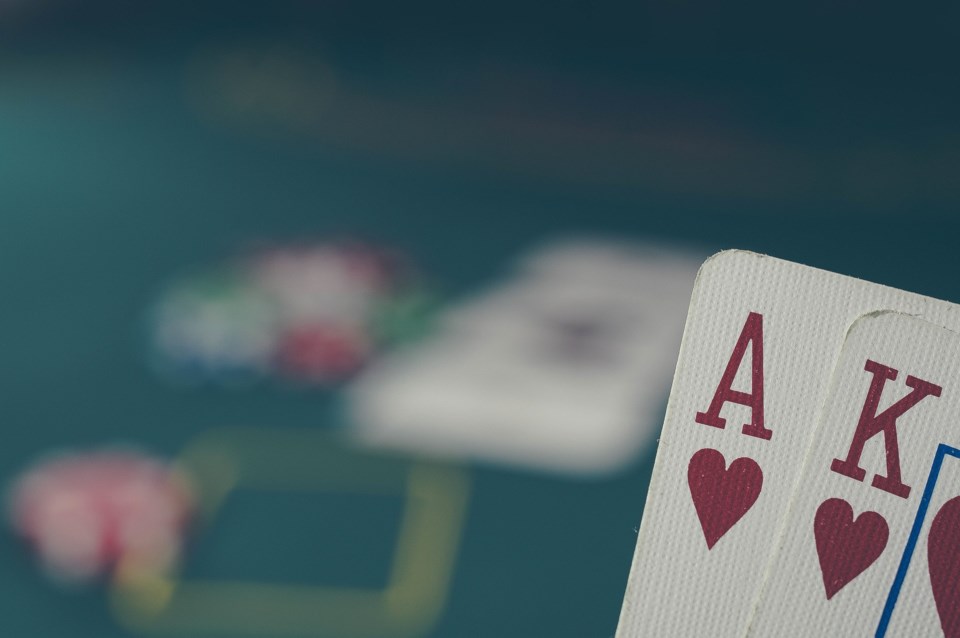Poker is a game that has been around for centuries, and it’s become increasingly popular in recent years. While luck certainly plays a role in this casino game, the most successful players are those who understand the art of bluffing. Bluffing is an important skill to master if you want to be successful at poker as it allows you to deceive your opponents and have a better chance of winning big pots without necessarily having strong hands.
In order to be able to bluff effectively, you need to understand how your opponents think and act when they're facing tough situations. Knowing their tendencies will help you determine when they're likely to fold or call and give you an edge over them. It's important to adjust your style of play depending on the type of players at the table.
One of the most important aspects of mastering the art of bluffing is understanding your own emotions and being able to control them during difficult situations. With practice and patience anyone can learn how to successfully use bluffing as part of their strategy in order to maximize their chances of success at poker.
The fundamentals of bluffing in poker
Bluffing is an essential part of poker and it’s a skill that can be learned and improved upon. The key to successful bluffing is understanding the fundamentals of the game. You need to understand how your opponents are likely to react in certain situations. Knowing their tendencies will help you decide when and how to bluff. You should also pay attention to the betting patterns of your opponents as this can give you clues about their hands.
It is essential to learn when not to bluff. If you have a strong hand or if there are too many players in the pot then it may not be worth trying a bluff. Timing is everything when it comes to bluffing – if you wait too long or act too soon, your opponents may catch on and call your bluff. You should also be aware of how much you are betting when bluffing. Betting too little or too much can give away your intentions and cause you to lose the pot.
With practice and patience anyone can become an expert bluffer. You can practice with friends in order to hone your skills and be able to use bluffing as an effective tool in your poker game. Or try your hand at pokies online Australia if you’re up for something more relaxed.
How to spot a bluff during a poker game
Spotting a bluff during a poker game can be quite tricky as it requires you to read your opponents’ body language and facial expressions. Pay attention to the way they act when they are betting or raising. If their behavior is too aggressive, it could mean that they are trying to bluff you. Also, watch out for any signs of nervousness or hesitation in their actions. If they seem overly anxious or uncertain about their moves, chances are that they don’t have a strong hand and are trying to bluff you into folding.
Pay attention to how often your opponents bet on weak hands. If someone is constantly betting on weak hands without much thought behind it, then this could be an indication that they are trying to bluff you with a stronger hand than what they actually have. If your opponent has been playing tight all night but suddenly starts making large bets or raises without any good reason – this could also be an indication of them trying to bluff you out of the pot.
The psychological effects of bluffing
Bluffing is a common tactic used in poker and it can be a very beneficial strategy if used correctly. Bluffing can be a very effective tool to help a player succeed. By bluffing, a player can gain an advantage by deceiving their opponents into believing they have a better hand than they actually do. This can lead to the opponent folding and thus allowing the bluffer to take the pot uncontested.
Bluffing also helps players develop psychological traits such as confidence and resilience that are essential for success in poker and other card games. These skills help players stay calm under pressure and make sound decisions when facing difficult situations. Bluffing can help improve a player's mental toughness by teaching them how to handle themselves in difficult situations without giving away too much information about their hand or strategy. Another benefit is that it forces players to think critically about their opponents' potential strategies and adjust accordingly.
This skill has been found to be beneficial for improving neural plasticity which helps individuals become better problem solvers over time. It requires quick thinking, strategic decision making and the ability to read opponents well - all of which are important qualities for any successful poker player.
Final words
There is no doubt that bluffing can be a powerful tool if used correctly and strategically. Know when to use it and know when not to use it in order to boost your chances in poker.



